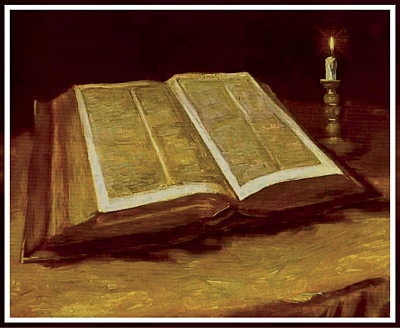We learned earlier in this series that God uses the name Jehovah in the Old Testament to show that He is the Lord in relationship to His creation—especially in His covenant relationship with His people. We’ve also explored several names of God formed by combining Jehovah with other Hebrew words to show specific aspects of God’s relationship with those He has created.
It’s interesting to observe the different ways titles of God are used in the Bible. Sometimes God directly identifies Himself by these names. For example, in Exodus 15:26 God says, “…I am the Lord that healeth thee” (Jehovah-ropheka). Sometimes the name is simply used in Scripture to describe an aspect of God. For example, in several places He is called “the Lord of hosts” (Jehovah-tsebaoth) or “the Lord most high” (Jehovah-elyon).
In two instances, a name is given to an altar. In Exodus 17:15 an altar is called Jehovah-nissi, meaning “the Lord [is] my banner,” and in Judges 6:24 another altar is called Jehovah-shalom, meaning “the Lord [is] peace.” Sometimes the name is given to a geographic location. In Genesis 22:14 a place is called Jehovah-jireh, which means “the Lord will see, or provide;” and in Ezekiel 48:35 a city is given the name “the Lord is there” (Jehovah-shammah).
Now let’s consider the name Jehovah-tsidqenu, “the Lord our Righteousness.” In Jeremiah 23, God uses this magnificent name prophetically concerning the promised Messiah, Jesus Christ, the righteous Branch that would emerge from the line of David.
Jeremiah 23:5 and 6:
Behold, the days come, saith the Lord, that I will raise unto David a righteous Branch, and a King shall reign and prosper, and shall execute judgment and justice in the earth.
In his days Judah shall be saved, and Israel shall dwell safely: and this is his name whereby he shall be called, THE LORD OUR RIGHTEOUSNESS [Jehovah-tsidqenu].
Of course, giving this name to Jesus Christ doesn’t mean that he is God, any more than calling an altar “the Lord my banner” makes the altar God. The name “Jesus” means “the Lord our savior” or “the Lord is salvation.” According to Matthew 1:23, Jesus was called “Emmanuel,” which means “God with us.” The name “Joshua” in the Old Testament carries the same meaning as “Jesus”—“the Lord our savior”—but that certainly doesn’t mean that Joshua was God, nor does it imply that Jesus was God either.
As we study Jehovah-tsidqenu, “the Lord our Righteousness,” we’ll see that it is tremendously descriptive of God and is also a very appropriate name for Jesus Christ to carry as the righteous Branch. God is righteous, and He has made us righteous through the accomplished works of His Son, Jesus Christ. God is the author of our righteousness. Jesus Christ is the agent of our righteousness.
Let’s begin by looking at some verses that show that God is righteous. Several verses in the Old Testament declare definitively that the Lord is righteous.
II Chronicles 12:6:
Whereupon the princes of Israel and the king humbled themselves; and they said, The Lord is righteous.
Psalms 11:7:
For the righteous Lord loveth righteousness; his countenance doth behold the upright.
Jeremiah 12:1:
Righteous art thou, O Lord, when I plead with thee….
Lamentations 1:18:
The Lord is righteous….
Now let’s go to the New Testament and see how God made us righteous through the accomplished work of Jesus Christ. No man was able to make himself righteous by his own works, by keeping the Mosaic law. But God sent His only begotten Son, Jesus Christ, to pay the price for sin and its consequences. Look at the righteousness of God that is now ours.
Romans 3:20-26:
Therefore by the deeds of the law there shall no flesh be justified in his sight: for by the law is the knowledge of sin.
But now the righteousness of God without the law is manifested, being witnessed by the law and the prophets;
Even the righteousness of God which is by faith of Jesus Christ unto all and upon all them that believe: for there is no difference:
For all have sinned, and come short of the glory of God;
Being justified freely by his grace through the redemption that is in Christ Jesus:
Whom God hath set forth to be a propitiation [payment] through faith in his blood, to declare his righteousness for the remission of sins that are past, through the forbearance of God;
To declare, I say, at this time his righteousness: that he might be just, and the justifier of him which believeth in Jesus.
We were justified freely by God’s grace through the redemption in Christ Jesus. Jesus Christ gave his life so that we could be made the righteousness of God in him.
II Corinthians 5:21:
For he [God] hath made him [Jesus Christ] to be sin for us, who knew no sin; that we might be made the righteousness of God in him.
Because of the redemption that is in Christ Jesus, God’s righteousness can now be appropriated in the Grace Administration as we simply believe unto that righteousness….
This is an excerpt from the September/October 2013 issue of The Way Magazine.
Copyright© 2013 by The Way International. All rights reserved.
For more information on subscribing to The Way Magazine, Click Here

